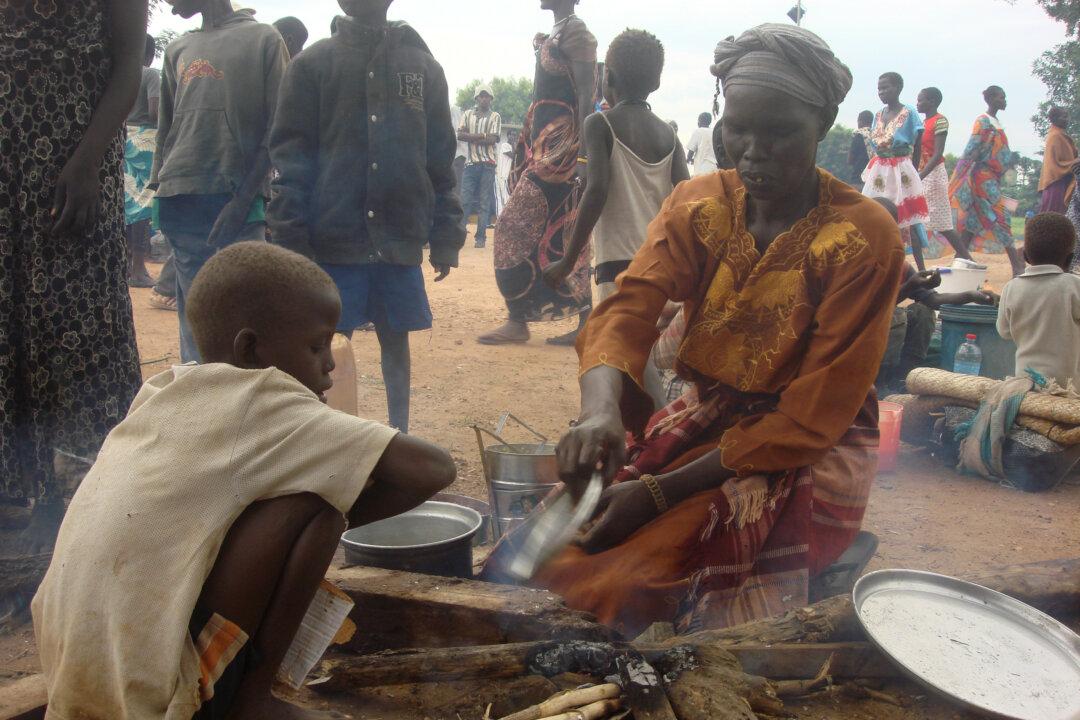“Aleppo was a large and terrifying town,” wrote the American writer Frederic Prokosch in his famed novel “The Asiatics.” This has been never truer of that city in Syria than now.
I am looking at a photograph of a crying man, holding in his arms the bloodied body of his son, a child, among the rubble of Aleppo. The man is kneeling down, his left foot diverging from the right foot, giving additional pathos to an already disturbing image. The pain of the world is on the man’s shoulders.
Viewing a photograph of an apartment building almost totally destroyed by bombs from government plains, one can easily imagine the following scenario as narrated by a 10-year-old child.
“We were all huddled in a back room of our house. We had been asked to leave, since most of our neighbors had already left, but my grandma yelled at what she thought were intruders, ‘How can I leave when my husband is unable to move!’ The men fighting outside our house left, perhaps realizing that they could win a battle but they would lose the war against my grandmother’s determination. Now, even if we wanted, we couldn’t leave.
“I looked at my grandfather, sitting in his wheelchair, looking beyond into space not understanding what was going on. He made a signal to my sister and asked for milk. She just moved her head until my older brother came to her rescue and told Grandpa, ‘Wait a little, Grandpa, I will bring it to you later.’
“In the meantime the noise became deafening. The front of our house was almost destroyed and plaster continued falling down in chunks from the walls. My father was nowhere to be found, so my mother became the reluctant head of the family. Since she wasn’t used to that role, she found it difficult to manage my brother, who was 11 years old and my two sisters, four and two years old. I was ten, so I tried to help them as much as I could. Without my brother’s help, however, I wouldn’t have been able to do it.
“While I was thinking about what was going on, we heard an awful noise. I looked through one of the doors towards the front of the house. Part of the ceiling had fallen down, totally crushing the piano, which in normal times my brother used to play in his free time after school.
“I said to myself ‘normal times’ and realized that I may never know again what those times were really like. Times when we said goodbye to our father at the door when he was going to work in the morning, and then my brother leaving for school; the times when we all came back, getting together for lunch, lovingly prepared by my mother and my grandmother. Only Grandpa was absent, I mean, not physically, just mentally, living in his own world.
“After a few days, I saw how the naturally sweet nature of my mother had totally changed from a good-humored, optimistic person, always singing or humming an Arabic song, into a person I almost didn’t recognize. A once proud woman, carefully dressed, she now seemed disheveled, speaking harshly not only to us, but even to her own mother, something that she had never done before.
“As I was having those thoughts we heard the steps of someone running towards our house and then a big noise against the front door. We were paralyzed with fear, all of us except my brother who ran towards the door, opening it slightly and seeing a young man totally covered with blood, screaming with pain. Seconds later the man fainted and fell on the ground. My brother immediately closed the door and came back to the back room where we were all sitting, terrified.
“He described what he saw but my mother refused to do anything for the young man at the door. Grandma, however, wouldn’t stand still. At first she asked and then she yelled to my mother that they couldn’t leave somebody, anybody, to die all alone, like an abandoned animal. I couldn’t contain my tears.
“Finally, seeing that she would be unable to contain Grandma, my mother relented and went with my brother to the door, where they both pulled the young man in. Grandma brought a wet towel, and cleaned him. He slowly opened his eyes, painfully, full of terror.”
This is a fictional account based on true events. Seeing what is happening in Aleppo now is very painful to me. Two of my grandparents came to America from that hapless, ravaged city.
Dr. Cesar Chelala is a co-winner of an Overseas Press Club of America Award.
Opinion
Aleppo’s Unending Suffering
“Aleppo was a large and terrifying town,” wrote the American writer Frederic Prokosch in his famed novel “The Asiatics.” This has been never truer of that city in Syria than now.

A boy holds books as he stands outside his school following airstrikes by Syrian government forces on the northern city of Marea, Syria, on the outskirts of Aleppo, Dec. 22, 2013. Dozens of people were killed in an eighth day of air strikes, a watchdog said. Mohammed Al-Khatieb/AFP/Getty Images
|Updated:



